- Clone
- S20016E (See other available formats)
- Regulatory Status
- RUO
- Other Names
- Hematopoietic progenitor cell antigen CD34
- Isotype
- Mouse IgG2a, κ
- Ave. Rating
- Submit a Review
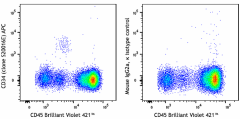
| Cat # | Size | Price | Save |
|---|---|---|---|
| 378605 | 25 tests | ¥25,300 | |
| 378606 | 100 tests | ¥61,600 |
CD34, also known as gp105-120, is a type I monomeric sialomucin-like glycophosphoprotein with an approximate molecular weight of 105-120 kD. Since it is selectively expressed on the majority of hematopoietic stem/progenitor cells, bone marrow stromal cells, capillary endothelial cells, embryonic fibroblasts, and some nervous tissue, CD34 is a commonly used marker to identify human hematopoietic stem/progenitor cells. According to the differential sensitivity to enzymatic cleavage, four groups of epitopes of CD34 have been described. CD34 mediates cell adhesion and lymphocytes homing through binding to L-selectin and E-selectin ligands. About 40% of acute myeloid leukemias and 65% of pre-B acute lymphoblastic leukemias express CD34, whereas only 1-5% of acute T-lymphoid leukemias are CD34 positive.
Product DetailsProduct Details
- Verified Reactivity
- Human
- Antibody Type
- Monoclonal
- Host Species
- Mouse
- Immunogen
- Human CD34-transfected cells
- Formulation
- Phosphate-buffered solution, pH 7.2, containing 0.09% sodium azide and BSA (origin USA)
- Preparation
- The antibody was purified by affinity chromatography and conjugated with APC under optimal conditions.
- Concentration
- Lot-specific (to obtain lot-specific concentration and expiration, please enter the lot number in our Certificate of Analysis online tool.)
- Storage & Handling
- The antibody solution should be stored undiluted between 2°C and 8°C, and protected from prolonged exposure to light. Do not freeze.
- Application
-
FC - Quality tested
- Recommended Usage
-
Each lot of this antibody is quality control tested by immunofluorescent staining with flow cytometric analysis. For flow cytometric staining, the suggested use of this reagent is 5 µL per million cells in 100 µL staining volume or 5 µL per 100 µL of whole blood. It is recommended that the reagent be titrated for optimal performance for each application.
- Excitation Laser
-
Red Laser (633 nm)
- Application Notes
-
The S20016E antibody recognizes a class III group epitope, which is resistant to sialidase/glycolyprotease treatment.
- RRID
-
AB_3068132 (BioLegend Cat. No. 378605)
AB_3068132 (BioLegend Cat. No. 378606)
Antigen Details
- Structure
- Single-pass type I membrane protein
- Distribution
-
Hematopoietic stem/progenitor cells, bone marrow stromal cells, endothelial cells, embryonic fibroblasts
- Function
- Cell adhesion
- Interaction
- L-selectin, CRKL
- Ligand/Receptor
- L-selectin, E-selectin
- Cell Type
- Endothelial cells, Fibroblasts, Hematopoietic stem and progenitors
- Biology Area
- Cell Biology, Immunology, Neuroinflammation, Neuroscience, Stem Cells
- Molecular Family
- CD Molecules
- Antigen References
-
- Simmons DL, et al. 1992. Journal of Immunology. 148: 267-71.
- Krause DS, et al. 1996. Blood. 84: 1-13.
- Sidney LE, et al. 2014. Stem Cells. 32:1380-9.
- Gene ID
- 947 View all products for this Gene ID
- UniProt
- View information about CD34 on UniProt.org
Related FAQs
Other Formats
View All CD34 Reagents Request Custom Conjugation| Description | Clone | Applications |
|---|---|---|
| Purified anti-human CD34 | S20016E | FC |
| PE anti-human CD34 | S20016E | FC |
| APC anti-human CD34 | S20016E | FC |
Customers Also Purchased
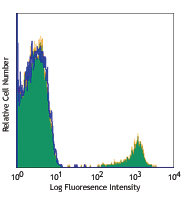
Compare Data Across All Formats
This data display is provided for general comparisons between formats.
Your actual data may vary due to variations in samples, target cells, instruments and their settings, staining conditions, and other factors.
If you need assistance with selecting the best format contact our expert technical support team.
-
Purified anti-human CD34

Human peripheral blood mononuclear cells were stained with a... -
PE anti-human CD34

Human peripheral blood mononuclear cells were stained with a... -
APC anti-human CD34

Human peripheral blood mononuclear cells were stained with a...












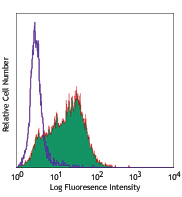
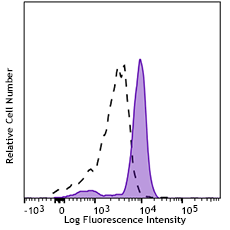
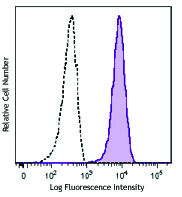







Follow Us